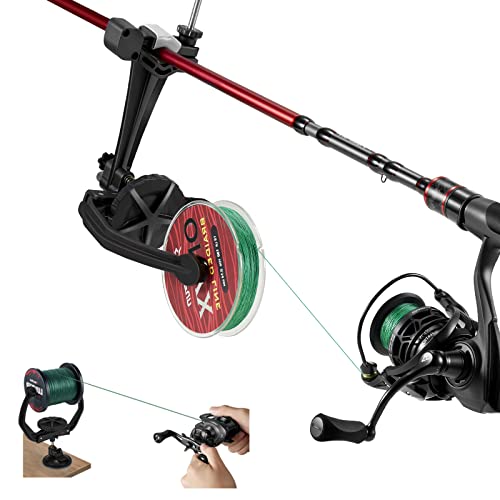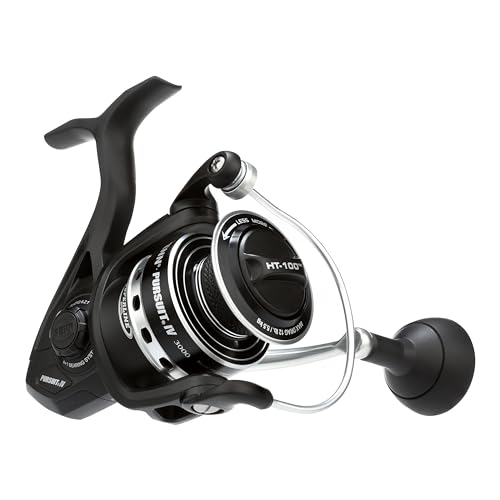No, fishing is not a sin. It is a popular recreational activity enjoyed by many people around the world.
Taking part in fishing allows individuals to connect with nature, relax, and experience the thrill of catching fish. While some religions may have certain guidelines or restrictions regarding fishing practices, it is not generally considered a sinful activity in most belief systems.
Fishing can also have positive impacts on mental well-being and contribute to conservation efforts through sustainable fishing practices. Overall, fishing is a personal choice and should be enjoyed responsibly and within the legal regulations of each location.

Credit: sitn.hms.harvard.edu
The History And Significance Of Fishing
Fishing is a practice that has been ingrained in human history since time immemorial. Whether it is regarded as a simple pastime or a means of survival, its roots trace back to the earliest civilizations. In this blog post section, we will delve into the historical significance of fishing, exploring its early origins, its role as a means of survival, and the evolution of fishing techniques over time.
Early Origins Of Fishing
- Fishing can be traced back to ancient times, where early humans began to explore different ways to procure food.
- The practice of fishing was likely initiated as a result of observing animals catching fish in bodies of water.
- Spearing fish was one of the earliest fishing methods used, as evidenced by ancient spears found in archaeological sites.
- Early fishermen also used nets made from plant fibers to trap fish, a technique that has evolved and progressed over the course of history.
- Fishing played a crucial role in the survival of communities, providing them with a consistent source of sustenance.
Fishing As A Means Of Survival
- As populations grew, fishing became essential for sustaining livelihoods and supporting communities.
- Coastal regions relied heavily on fishing, as the proximity to water bodies allowed for easier access to marine resources.
- Inland communities developed methods such as angling and trapping to catch fish from rivers, lakes, and ponds.
- Fishing not only provided sustenance, but it also facilitated trade and barter, contributing to the development of early economies.
- The knowledge and skills associated with fishing were passed down through generations, forming an integral part of cultural heritage.
Evolution Of Fishing Techniques
- Over the centuries, fishing techniques have evolved and adapted to different environments and resources.
- The invention of fishing tools such as hooks, lines, and sinkers revolutionized the way fish were caught.
- Advancements in boat designs allowed fishermen to venture further into the open sea, expanding their fishing territories.
- The introduction of specialized fishing gear, such as fishing nets, allowed for more efficient and larger-scale fishing operations.
- Modern technology, including sonar, gps, and sophisticated fishing equipment, has further transformed the fishing industry, enabling greater precision and productivity.
Fishing has undoubtedly played a significant role in shaping human history. From its humble beginnings as a means of survival to its evolution into a widespread recreational activity, fishing remains deeply rooted in our culture. The historical significance of fishing not only lies in its practical contributions to sustenance and trade but also in its preservation of tradition and the art of capturing life from the waters.
The Ethical Debate: Fishing And Morality
**the ethical debate: fishing and morality**
Fishing has been a popular recreational activity for centuries, providing individuals with relaxation, a connection to nature, and the thrill of catching a fish. However, a debate has emerged regarding the morality of fishing. Some argue that fishing is a sin, questioning the ethics of causing harm to living creatures for personal pleasure.
Let’s explore this ethical debate further and examine different religious perspectives, the concept of stewardship, and the notion of animal rights and sentience.
Examining Different Religious Perspectives
Religious beliefs and teachings can shape our understanding of what is right or wrong, including the act of fishing. Here are some key points to consider:
- Christianity:
- Many christians view fishing as a moral activity, citing the example of jesus instructing his disciples to become “fishers of men.”
- Others believe that responsible and sustainable fishing is acceptable, emphasizing the importance of respect for god’s creation and the ethical treatment of animals.
- Buddhism:
- Buddhism teaches compassion and non-violence towards all living beings. Some buddhists might view fishing as morally problematic, as it involves harming and killing sentient creatures.
- Hinduism:
- In hinduism, the act of causing harm to any living being is generally discouraged. However, fishing for sustenance rather than sport or pleasure may be seen as morally acceptable.
The Concept Of Stewardship
One ethical perspective that often arises in the fishing debate is the concept of stewardship. Stewardship refers to responsible management and caring for the environment and its resources. Consider the following points:
- Stewardship and sustainable fishing:
- Some argue that responsible fishing practices, such as catch-and-release or adhering to fishing regulations, align with the principles of stewardship. They maintain that fishing can coexist with ecological conservation.
- Overfishing and depletion of resources:
- Critics of fishing as a moral activity point out the negative consequences of overfishing, which can lead to the depletion of fish populations and disrupt ecosystems. They argue that this conflicts with the principles of stewardship.
Understanding Animal Rights And Sentience
The ethical debate surrounding fishing also involves considerations of animal rights and sentience. Here are some key points to ponder:
- Animal rights and fishing:
- Fishing raises concerns regarding the rights of sentient beings. Those who oppose fishing argue that it violates the fundamental rights of fish to live free from unnecessary harm.
- Sentience and animal welfare:
- The recognition of fish as sentient beings capable of feeling pain and suffering adds a layer of complexity to the ethical debate. This has led to increased advocacy for more humane fishing practices that minimize harm.
The ethical debate surrounding fishing and morality is a complex and multifaceted issue. Religious perspectives, the concept of stewardship, and considerations of animal rights and sentience all contribute to the diversity of opinions. While some argue that fishing can be morally justifiable, others question the harm inflicted on sentient beings for personal pleasure.
Ultimately, each individual must examine their own values and beliefs to form their stance on whether fishing is a sin.
Finding Balance: Fishing As A Source Of Peace
Fishing has long been a popular pastime enjoyed by people all over the world. But for some, the question of whether fishing is a sin may arise. In this section, we will explore the idea of finding balance when it comes to fishing and how it can provide a sense of peace.
With a focus on connecting with nature and the outdoors, the therapeutic benefits of fishing, and sustainable fishing practices and conservation efforts, we will delve into why fishing can be seen as a positive activity.
Connecting With Nature And The Outdoors
- Fishing allows individuals to immerse themselves in nature and experience the beauty of the outdoors.
- It provides an opportunity to disconnect from the hectic pace of everyday life and find solace in the serenity of nature.
- Being in nature has been proven to have numerous health benefits, including reducing stress, increasing mindfulness, and improving mental well-being.
- Fishing encourages individuals to explore different environments, such as lakes, rivers, or oceans, and appreciate the diverse ecosystems that exist within them.
- It fosters a sense of appreciation and respect for the natural world, promoting a desire to protect and preserve it for future generations.
The Therapeutic Benefits Of Fishing
- Fishing can be a meditative and calming activity, allowing individuals to enter a state of relaxation.
- The rhythmic motions of casting and reeling can have a soothing effect on the mind and body.
- It provides a sense of accomplishment and self-confidence when a catch is made, boosting one’s mood and self-esteem.
- Fishing also encourages patience and perseverance, as it may require waiting for extended periods before getting a bite.
- Spending time outdoors and engaging in physical activity while fishing contributes to improved physical health.
Sustainable Fishing Practices And Conservation Efforts
- With the increasing concern over declining fish populations and the ecological impact of overfishing, sustainable fishing practices are crucial.
- Catch and release practices, where fish are released back into the water after being caught, help maintain healthy populations and protect species.
- Adhering to local regulations and fishing seasons ensures that fish are not harvested excessively.
- Conservation efforts, such as establishing marine protected areas, help preserve and restore marine ecosystems.
- The promotion of sustainable fishing practices encourages a responsible and ethical approach to fishing that minimizes harm to the environment.
While the question of whether fishing is a sin may vary depending on personal beliefs and cultural contexts, it is clear that fishing can provide a sense of peace and balance when approached in a mindful and sustainable manner. By connecting with nature and the outdoors, enjoying the therapeutic benefits of fishing, and engaging in sustainable practices, individuals can find harmony between their love for fishing and their concern for the environment.
Conclusion
The question of whether fishing is a sin is a complex one that cannot be easily answered. While some religious texts may mention restrictions on certain types of fishing or the treatment of animals, there is no clear-cut consensus across all faiths.
Additionally, cultural and ethical perspectives also play a role in shaping our beliefs about fishing. Ultimately, it is up to each individual to examine their own values and intentions when engaging in the activity of fishing. It is important to consider the impact on both the environment and animal welfare, as well as to practice responsible and sustainable fishing methods.
By honoring these considerations, we can approach fishing in a way that aligns with our own personal beliefs and values, ensuring a harmonious coexistence with nature and its creatures.




